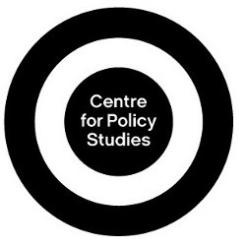The Centre for Policy Studies has accused charities of a lack of transparency and inconsistency in their annual accounts, and claimed that up to £3.4bn is being “concealed” by the top 50 charities.
Transparency begins at home – Why charities must state who funds them was written by William Norton and analyses the accounts of the top 50 UK charities by income. According to the report 24 per cent of their combined income, £3.1bn, is directly attributed to public funding but lack of clarity in some areas means that it could be 49 per cent, or £6.5bn.
“Under the current accounting requirements it is not possible to accurately assess the level of public funding of most major charities in England and Wales,” the report says. It adds that 32 of the top 50 say they receive public funding but claims it is not easy to tell from their accounts exactly how much.
A new accounting standard, Sorp 2015, applies for annual reports being compiled from this month onwards but according to the report it is unlikely to solve the issues.
It has ranked organisations by what proportion of their income comes from government sources and also by the proportion of their income that it has defined as “uncertain”. It accuses 16 charities of being unclear about more than 49 per cent of their income.
The CPS has produced a table titled ‘Unquantifiable UK taxpayer support for the top charities’ in which it has listed all those charities that received a grant from a government department but not specified the amount, and those that have not provided a full breakdown of their local authority contracts.
The London Clinic Trustees comes top of this list with 99.9 per cent of its funding deemed ‘uncertain’, followed by AQA Education with 99.3 per cent, St Andrews Healthcare with 98.2 per cent. Mencap is ranked sixth with 91.1 per cent, followed by Leonard Cheshire Disability with 89.9 per cent and Action for Children with 87.5 per cent.
“In particular there is far less transparency about the fees earned for charitable activities,” the report adds, adding that: “It is impossible to be certain about the source of a considerable proportion of the top charities’ incoming resources.”
The report highlights Marie Stopes International which provides details on 15 grants totalling £73m but does not provide a breakdown of the income from fees earned for charitable activity. The charity says in its annual report that it is “not possible to allocate between countries on a consistent and reliable basis”.
It identifies the British Council as an example of a charity “not trying to provide open disclosure” because the charity emphasises the cuts to its grant-in-aid in its annual report but at the same time it has won contracts from government without explaining exactly how much this represents.
The report identifies areas of good practice by individual charities such as Oxfam and the National Trust which give a full breakdown of all the grants that they receive. It also recognises that Action for Children, Mencap and Age UK provide estimates of the proportion of their income that is derived from public sources.
Charities: Centre for Policy Studies assumptions are ‘wrong’
Charities have rejected the accusation of a deliberate lack of transparency and maintained that their accounts comply with the current requirements.
In a statement the London Clinic said that it receives very little income from government: “The London Clinic has on rare occasions conducted very small amounts of NHS-funded work, at the request of local NHS Trusts, to relieve pressure on waiting times. This work has never accounted for more than 1 per cent of the Clinic’s total revenue; for example in 2014 it accounted for 0.001 per cent of total revenue.”
A spokesman for Marie Stopes said: “We are a large and complex global organisation and our annual accounts can only ever provide a certain level of detail. Each and every one of our donors, funders and commissioners has full and detailed reports on a far more regular basis on how we spend every penny trusted to us to further our mission.
“We are baffled and disappointed by the tone taken in parts of this report since we are fully compliant with Sorp requirements, and go to considerable lengths to report openly on our activities and the impact we have in the pursuit of our charitable mission.”
The British Council said: “Our government grant-in-aid continues to fall in line with the Spending Review Settlement of October 2010 and was reduced by £9m in 2013/14 to £165m which represents 20 per cent of our turnover. The majority of the rest of our turnover comes from individuals in over 100 countries around the world who pay to take English language classes or British exams at the British Council.”
NCVO said government departments and other public bodies should be responsible for revealing more detail about their spending, rather than placing all the responsibility on charities.
Karl Wilding, director of public policy, said: "We agree that there should be more information available to the public on how the government spends its money. The simplest and most efficient way to achieve this is for public sector bodies to publish full details of their spending on outsourced services from private companies and charities.”
He added: “We believe charities should operate to the highest standards of transparency – but we should remember they are already far more transparent in these terms than the private sector, while the government still has more to do to shed light on how it spends money on outsourced public services.”










